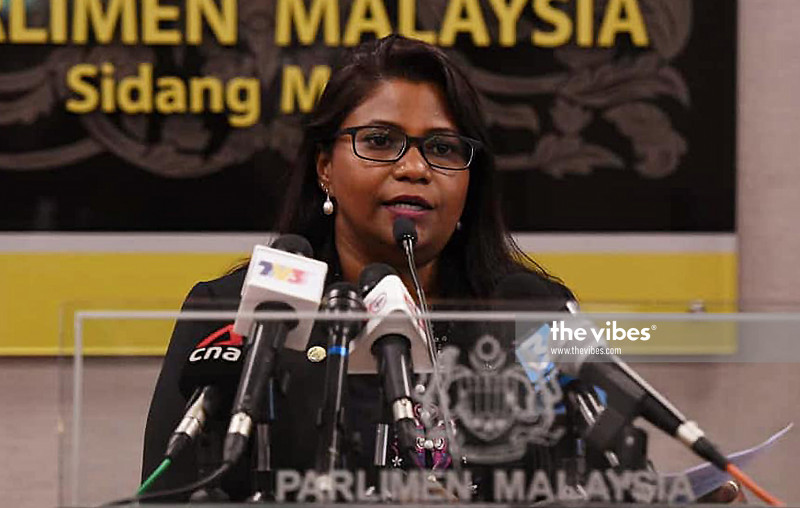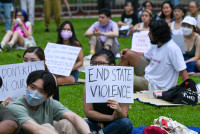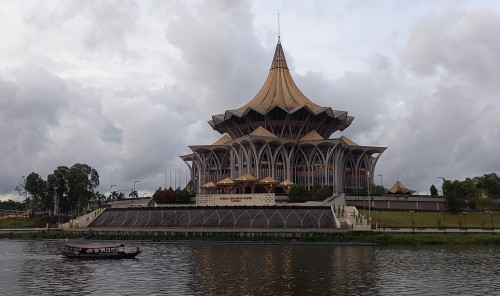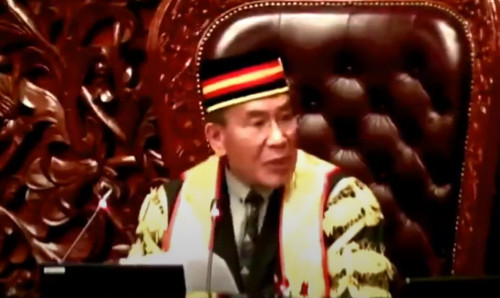ON this World Day Against the Death Penalty, Malaysia must detach herself from using archaic punishments like torture and the death penalty left by colonial masters in building a reformed society.
Every year on October 10, the world observes this date and the never-ending campaign to see a total abolition of the death penalty across state lines all over the world.
This year, Malaysia can mark this day with pride having taken a small victory step in the right direction after Minister in the Prime Minister’s Department (Parliament and Law) Datuk Seri Wan Junaidi Tuanku Jaafar tabled the first reading of amendments to seven bills to abolish the mandatory death penalty.
To date, there are 33 offences that carry the death penalty in Malaysia, of which 11 are mandatory.
The amendments, once debated and passed, will mean that while the death penalty still remains, it will no longer be mandatory – empowering judges to decide when to use them.
It should also be noted that Malaysia has had a moratorium on executions for the past few years and she must keep the moratorium, even if the abolition of the death penalty happens.
The latest figure on death row inmates in Malaysia stands at 1,340 consisting of Malaysians and non-Malaysians, and some have been on death row for over 30 years.
The theme this year is dedicated to the relationship between the use of the death penalty and torture or other cruel, inhuman, and degrading treatment or punishment.
The amendments to abolish the mandatory death penalty in Malaysia comes with two different alternative punishments which are whipping and imprisonment for natural life.
All three punishments, including the death penalty, have been around since Britain colonised Malaya. Decades later, these punishments no longer exist in the United Kingdom’s criminal justice system, and yet Malaysia is still holding on to them in this time and age.
During the Pakatan Harapan administration, the then foreign minister Datuk Seri Saifuddin Abdullah had been preparing Malaysia to ratify the United Nations Convention against Torture and Other Cruel, Inhuman or Degrading Treatment or Punishment (UNCAT).
While most countries in the world don’t use these primitive forms of punishment and have ratified UNCAT, Malaysia unfortunately sits amongst 18 countries – Barbados, Bhutan, Cook Islands, Democratic People’s Republic of Korea, Dominica, Iran, Jamaica, Micronesia, Myanmar, Niue, Papua New Guinea, Saint Lucia, Singapore, Solomon Islands, Tonga, Trinidad and Tobago, Tuvalu and United Republic of Tanzania – that have yet to ratify this convention.
Unfortunately, a coup and a change of regime in February 2020 have set the nation back decades and stalled progress on this matter so far.
Make no mistake, abolishing the mandatory death penalty is in no way an indicator that Malaysia is soft on crime.
Even crimes with whipping as their form of punishment have only increased over the years, indicating that harsh punishment does not have a strong deterrent effect after all.
Yes, those who commit crime must face the music and some form of punishment. This does not mean, however, that Malaysia should keep the death penalty and torture as options.
A civilised and progressive society moves in the direction of stamping out archaic forms of punishments – like torture and the death penalty – and focuses on improving people’s socio-economic lives.
For centuries, the death penalty has been disproportionately used against minority groups, the marginalised and vulnerable communities which exist in large populations as well.
Statistics from the Prisons Department also validate that more than 86% of people on death row come from B40, marginalised, minority and vulnerable communities in Malaysia and around the world.
When was the last time we ever heard of the death penalty being used on a person of privilege or one related to a person in a powerful position who has committed a crime?
In Malaysia, people of position and power who have been convicted (and this does not happen very often) face differential treatment from the common man and woman on the street. When double standards exist in the criminal justice system, to end a life is abhorrent.
Malaysia must take the first step in this direction by signing and ratifying the UNCAT and progressively doing away with torture as a form of punishment, and moving towards prison reforms in the country in the larger picture of total abolition of the death penalty. – The Vibes, October 10, 2022
Kasthuri Patto is the MP for Batu Kawan and DAP deputy secretary for international affairs. She is also president of Parliamentarians for Global Action





















